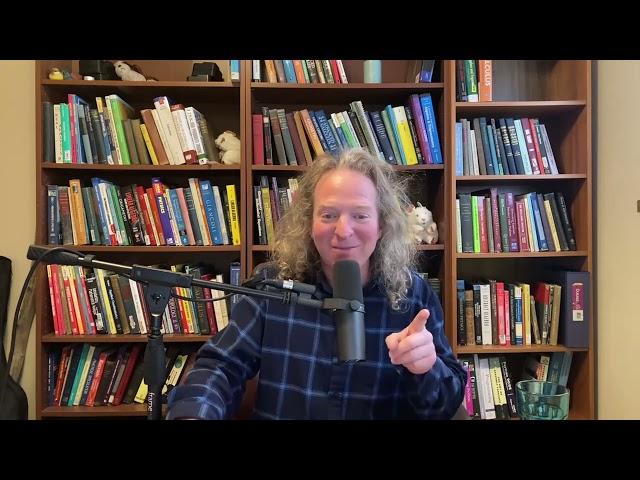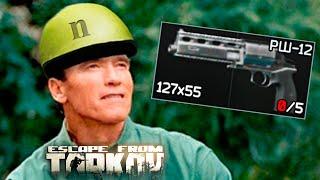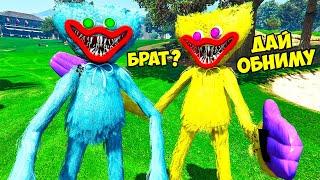
Very Advanced Mathematics - How To Learn It
Комментарии:

I think this is the problem with most math… why are we doing what we are doing??? I know it would help me to know the why behind the how. I enjoy math as a lay person but to understand where we are going absolutely necessary. Richard Feynman talks a lot about this issue, imagination! To make relevant for most people, you have to give them the initial imagination so they can grow their own imagination. I’m only working on basic college algebra and I already know that algebra is the accounting of the math world so I’m good. However, when I get to calculus, then what? Why do I need calculus, what does it do for me and why do I need it.?
I think math has been sooooooo underrated because of a lack of vision from faculty teaching it. For my college years it was only a means to an end.
This is why the Math Sourcer is so enlightening, not only is there encouragement but there is an explanation as to the why!
Just my opinion.

I know this is a question more for a CS sorcerer but since it's lies right at the border between CS and math: Do you have any resource recommendations for lambda calculus and functional programming?
Ответить
As is said in the video, actually doing exercises is one important aspect. That is the only way you will notice what you really know and do not know.
It is very easy to read and re-read the material and believe that you know it just because you recognize it.
Also, something which is very important, which was one of my biggest mistakes in my math education, is not to focus on getting to the next page as fast as possible.
When you see a new definition or a theorem. Don't just continue reading immediately after understanding it at some rudimentary level.
Instead, force yourself to stay with the definition or theorem. Ask yourself questions. Try to generalize what you see. What are some consequences of the definition.
Why do you think the definition has been chosen in this way. What would happen if you change it slightly?
By doing this you will see nuances and consequences that will greatly help your understanding of pages ahead of you. You will feel that you "own" the definition/theorem. It is not just another fact to burden your memory with.
If you just read to get to the next page as fast as possible you will soon get the feeling that your mind and memory is totally overwhelmed. Also with a low degree of understanding
you will soon not even understand what they are trying to prove or even why it is needed, or what the point is.
Understanding the more basic concepts better always pays off when trying to understand more advanced concepts.
Measure theory is a quite tricky subject, especially when you first encounter it. It is like analysis, but with the axiomatic threatment that typically reminds you more of algebra.
The reason we do all the complicated stuff in measure theory comes from the annoying fact that we would like to calculate lengths, areas, volumes and so on of all kinds of sets.
But the sad truth is that this is not possible without leading to appearant paradoxes such as the Banach-Tarski paradox.
So the idea is to sort out the sets that do make sense to play around with. And the exact way of doing that is measure theory..

Special needs kids have special needs.
Ответить
What I found the best thing to help me was taking a course PRIOR to the actual math class such as Udemy. That can make the difference between making an A vs failing. Stay ahead of the game. I REALLY suck in math, so I needed all the help I could get. Udemy really helps!
Ответить
One thing that occurred to me--and your story is a great illustration of this--is that professors don't have infinite creativity when it comes to coming up with good exam problems. So by tackling a lot of problems from a lot of different sources, it's kind of like peeking at a test ahead of time, since it's highly likely that you'll get questions that are similar if not identical to those problems.
Ответить
Do you have good books for self teaching calculus of variations? Or maybe you have a video that talks about this? Thanks.
Ответить
Thank you. 🌹
Ответить
I'm a fifth grader and my favorite subject is math my family hate math but I want to be an expert at math and become a mathematician so I can solve math problems in my mind bcoz right now math is hard for me
Ответить
I think time is really important. I understand many math concepts better now many years after I graduated from school because I spend a lot of time reading different math textbooks. I only understood the surface when I was in school. It really takes a lot of time for the information to sink in.
Ответить
When you talk about effort it reminds me of when people talk about muscle memory or 10,000 hours to learn something.
Ответить
I will definitely start learning math 🧮 today and this afternoon
Ответить
Thanks for all you do.
💜☮💙🌐💚👽💛😎🧡🏴☠️❤💯💥L337

sometimes i feel like most math books are written by autistic ppl, i don't know how else to describe this mix of pretension, boring language and total lack of empathy for the reader. i know the subject itself is extremely different, but some authors succeeded in making super hard math accessible, like jay cummings' 'real analysis', tristan needham's 'complex analysis' and john stillwell's 'algebraic number theory'
Ответить
Thank you Sir , Very helpful video, from Kolkata City , India. 🙏
Ответить
do the easy stuff first
Ответить
Wow. Thanks for answering this.
I was curious to ask you also if you have a video that lists recommended books for various math topics and classes (with maybe breakdowns by class, such as college algebra, calc 1, Calc 2, linear algebra, etc)? This came up in the video where he reads the letter and the guy says 'many of the books lacked clarity...'
Thanks.

❤️❤️❤️
Ответить
When I come here, I have flashbacks from my struggles in the mid-1970's. Thanks to you and others, I have renewed my interest. When I took general tests in mathematics, I always placed rather high, so it's been a mystery to me why I had so much trouble as an undergraduate. Now I'm working on all kinds of knowledge to keep my mental abilities up as I approach retirement.
Ответить
Measure theory? Too bad we can't resurrect Paul Dirac, the delta function(al), the comb. Honestly Wizard, a REAL singular rabbit hole is an illusion, but you knew that. Perhaps Hellboy can use his taslisman to find the right talker.
Ответить
Von Neumann's text on functional operators is super cool. I've only read the first few chapters of the first volume but I got a lot of great intuitions from this text. It uses the old notation which is very intuitive, A + B instead of A U B, AB instead of A ∩ B, I think this notation has fallen out of favor because things like topological groups would become way too confusing. The text also makes explicit use of series representations when talking about things like continuity of measure, thus we have A1 + A2 + A3 + etc. instead of UAi, I found this super helpful because it makes the theorems seem natural and clearly motivated by ideas in analysis. I read somewhere that a generation of measure theorists learned from Von Neumann's text so I will definitely return to it at some point along with Royden and Fitzpatrick. It might be hard to find a physical copy but it is available for free on Library Genesis.
Ответить
That guy is right. Math books should be written clearly if they're written to be used as sources of knowledge. The author who cannot present his stuff lucidly needn't to add a new book to the math library and frustrate learners.
Ответить
Charles Pugh - Real Mathematical Analysis from the UTM series is a very readable undergrad text that culminates in a chapter on Lebesgue measures. Even for those ready to read graduate texts on analysis, I think it's well worth checking out.
Ответить
Math is always hard when it is new. It takes time to internalise the definitions and theorem at any level. That being said, measure theory considered very advanced? Measure theory is taught in the third year of the bachelor and is considered a preparoty course for many master courses in functional analysis, statistics and probability theory. Furthermore, as a mathematical discipline it is outdeveloped.
Ответить
Great vid! My advice is very similar with a minor addition....get yourself a thick, marble notebook (1 or few) and start copying your measure theory problems in the notebook, with worked out solution. Start another notebook for examples and counter examples. That's how I learned analysis and topology.
Ответить
Halmos' Measure Theory is a classic although its a bit too abstract for my liking without many exercises.
Ответить
I can related to this person so much. I am an Applied Mathematics Master student as well. I recently took Measure Theory too and had the same problems. We were using “Measure, Integration, & Real Analysis “ by Axler. I think the book explains things well but I lacked a solid background in Analysis and Topology.
Ответить
Hello Dear Sir
I'm from Pakistan and i am BSCS Student currently so kindly I humble request to you sir please suggest me the best book for calculus and also for Discrete Mathematics

Man I feel the pain of this questioneer, I am a lot better and a lot more interested in discrete mathematics so Real Analysis is really kicking my ass rn too. Looking at other books and assignments has helped me out a lot too.
Ответить
Terry Tao - An introduction to measure theory is a great book for beginners and it is available for free on his website
Ответить
Will my mind splode if learn too much?
Ответить
"Get tons of books, they are super cheap..." is that some parallel universe?!
Ответить
I wholeheartedly agree: the vast majority of math books are written as a proof of understanding for the writers. Those with a modicum of pedagogical understanding are scarce. I hate when I read sentences like "it is easily seen that ..."
Ответить
The real analysis book by Sheldon Axler is amazing. Also the measure theory book by Capinski is very good for beginners.
Ответить
One of the things I tried to do in college math classes was to try to work the examples. I was not a memorizer so working the examples was helpful, especially if the class was hard. It helped build strategies on how to start and what common patterns occurred in the sequence required to solve the problem.
Ответить
I love your videos
Ответить
Is it possible to show/explain anything meaningful about theorems as the incomplete theorems of Godel and/or the proof done by Perelman?
Ответить
Somehow we learn so much from you in this video. We all hope to see more content similar to this. God bless you.
Ответить
I know it isn't a measure theory book, but it may help with analysis. There is a Springer book called Metric Spaces by Micheal O'Searcoid that is suppose to be a great transition book and good for self study.
Ответить
great video!
Ответить
Measure Theory was the hardest class I had when getting my PhD in applied math. I second the recommendation on using as many books as possible. One free online book worth obtaining is "Real analysis for graduate students" by Richard Bass. It's good at showing some of the standard techniques when working with the outer measure. Looking at texts that develop probability theory from a basis of measure theory might give another way to grasp this slippery subject. The last advice would be not to freak out about not knowing everything. I never used to much measure theory outside of the class where I learned it.
Ответить
My real analysis class used the Princeton lectures on analysis series texts by Stein and Shakarchi (any chance for you to get a set of these and review them hah?). Though the Princeton texts do have their advantages and interesting features, I personally do not find it to suit my style very well, at least during the semester when I took the class as a first time learner. I personally found Royden to be the best fit for my style back then. Rudin is a massive pain to learn from for a first timer - but as one progresses, we somehow usually refer back to Rudin for theorems that we want to use instead of other texts. I'd say Rudin is a good review/revision AFTER one completes a course in real analysis, given his super condensed yet rigorous style.
For me the most difficult chapter of measure-theoretic real analysis is actually the part on hard analysis (differentiation). I found the parts on soft analysis (measure, integration, Lp spaces) much easier to absorb. But the book that enlightened me the most on hard analysis topics was the book Measure and Integral by Wheeden and Zygmund (though they define the Lebesgue measure unconventionally imo). Again shows how having a variety of sources can help one's understanding - sometimes the treatment of different texts somehow clicks better than others for different topics etc.
And somehow I found abstract measure and integration theory much easier to grasp than manually constructing the Lebesgue measure geometrically. Yet it doesn't make sense to teach abstract theory right away before one even knows the Lebesgue measure......

I am on pre algebra now how long will it take to self teach upto higher maths?
Ответить
That's great advice, especially the perseverance part at the end. I was the same way, especially in subjects that I was just captivated by (e.g. differential geometry, complex analysis). I remember we had a particularly difficult complex analysis final, and just the night before I proved Caratheodory's theorem (not the measure theory one lol) on the boundedness of complex analytic functions by their real part. It was an exercise from a rather obscure text called "Complex Functions" by R.L. Goodstein I got just for fun. That was in addition to the texts by L. Ahlfors, J. Conway, and R. Narasimhan & Y. Nievergelt I used for self-study. So then, guess what? That same exercise showed up. I ended up with a very high grade in that test, and was able to secure an A. I used that momentum to propel me into studying complex functions of several variables with the same professor who taught that class, again for fun. I agree, surround yourself with good books, particularly those with challenging problems. Study the tips and tricks the authors use to solve these problems, and the more exposure, the better off you'll be.
Ответить
nice ideas
Ответить
If you don't understand your notes ask Chatgpt
Ответить
Capinski and Kopp is pretty elementary. But the issues the sender presents suggest they should perhaps review set theory alongside measure theory. Afaik no book on measure theory spends a lot of time on that. But honestly not a lot is needed and even just knowing De Morgan's laws should get you pretty far
Ответить
Hatcher is currently kicking my ass lol
Ответить
Another nice video :)
Ответить

























